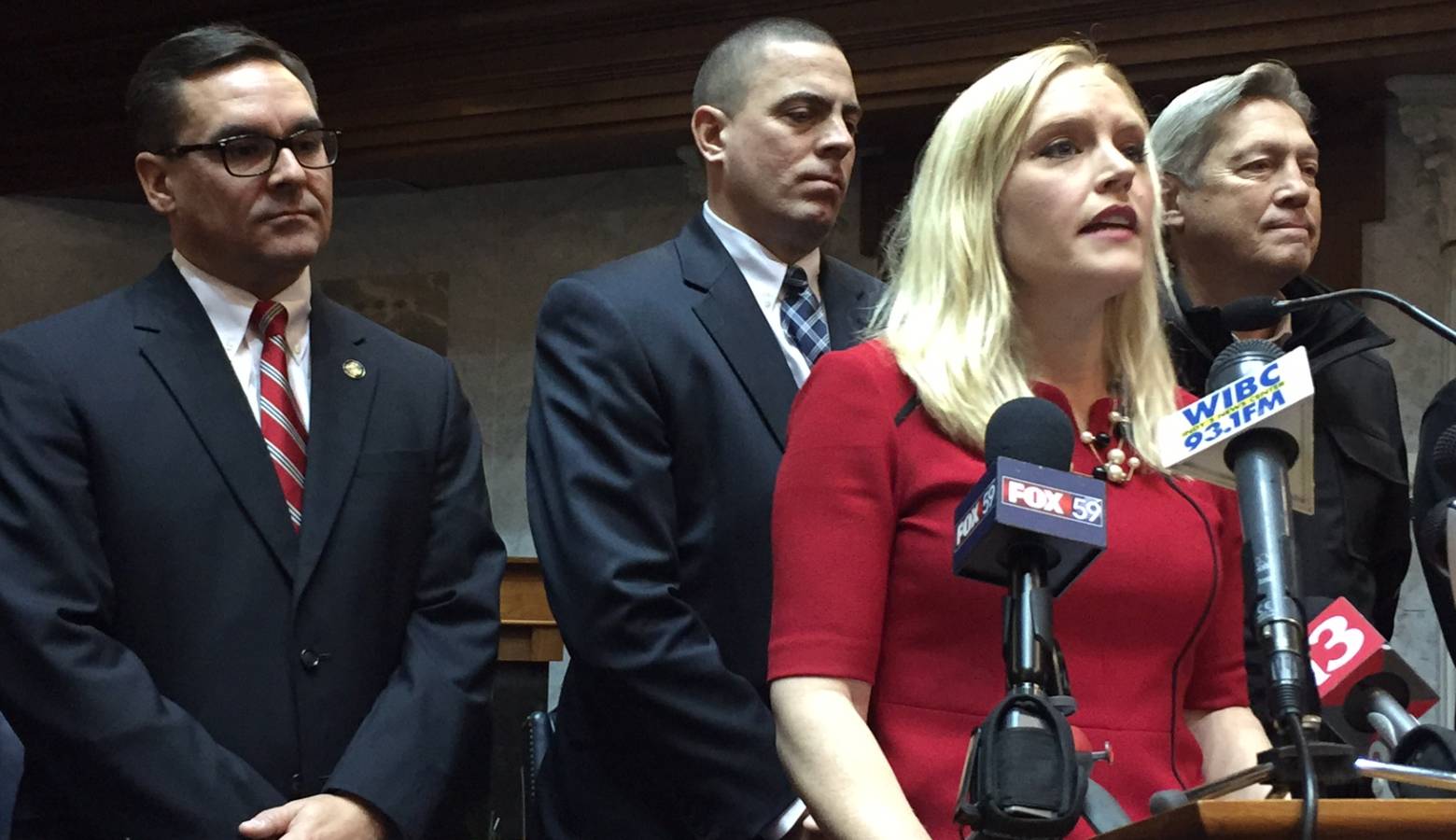Police Can Take DNA From Any Felony Arrestee As Law Takes Effect

Police in Indiana will now be able to take DNA samples from anyone brought in on a felony arrest warrant after a law passed in 2017 takes effect Jan. 1.
Markers from the DNA sample are put into a national database and used to compare with samples at other crimes across the state and country.
But while the measure was met with significant approval in both chambers of the General Assembly, some legislators – including Rep. Tom Washburne (R-Inglefield) – worried the system could be abused.
“You could be merely arrested to get your DNA,” Washburne says. “It does help that you’ve got to have probable cause – at least we have that – but it’s not that hard to find probable cause in a lot of situations.”
Sen. Erin Houchin (R-Salem), who authored the bill, argues taking a DNA sample is no more invasive than many other ID methods that have long been taken from every arrested suspect.
“Fingerprints are kept; they’re not expunged. Photographs are kept; they’re not expunged,” Houchin says. “This does provide an expungement process.”
The bill allows people to expunge the DNA record if they’re not charged after one year, if they’re acquitted, or if the charges are dismissed.
